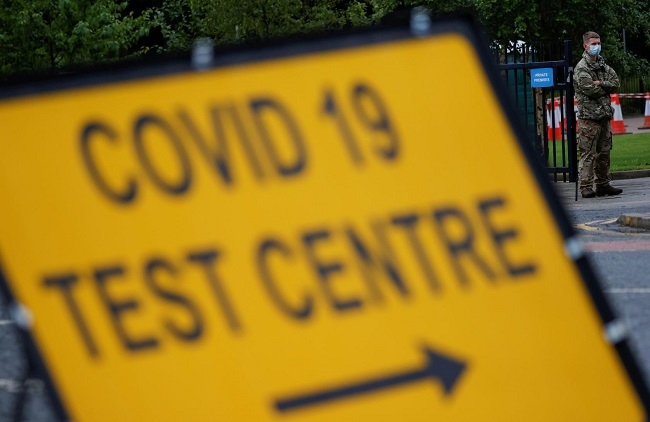



Health minister Matt Hancock has said he hopes mass testing using faster COVID-19 tests can be rolled out towards the end of the year, adding that they are key to restoring freedoms after months of COVID-19 restrictions.
The funding will be used to expand existing trials of saliva tests and a rapid 20-minute test in southern England, while a new, community trial in Salford, northwest England, will assess the benefit of population-testing, under which people are regularly tested regardless of whether they have symptoms, so that any cases can be picked up before they have spread widely.
"Innovative new tests that are fast, accurate and easier to use will maximise the impact and scale of testing, helping us to get back to a more normal way of life," Hancock said.
Currently, official health service advice is only for citizens to get a COVID-19 test if they have symptoms, although more regular testing is available for certain professions, such as care workers.
People contacted by the health service's Test and Trace programme in England must self-isolate for 14 days if they have been a recent contact of a confirmed COVID-19 case, but they are not told to get a test unless they have symptoms.
Similarly, travellers from certain countries must enter a 14-day quarantine.
The guidance to self-isolate rather than get a test is because a negative test cannot preclude the possibility of getting symptoms later in the quarantine period, health officials say.
"New testing technologies and methods are vital to keep the system evolving and improving, especially as we assess how routine testing could help pick up cases of the virus earlier," said Dido Harding, who runs the Test and Trace scheme.